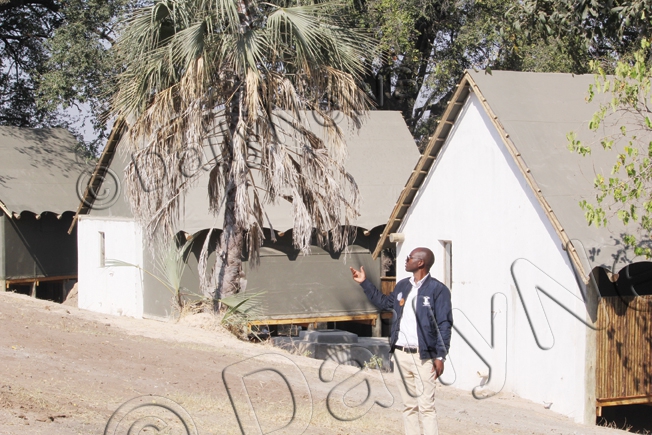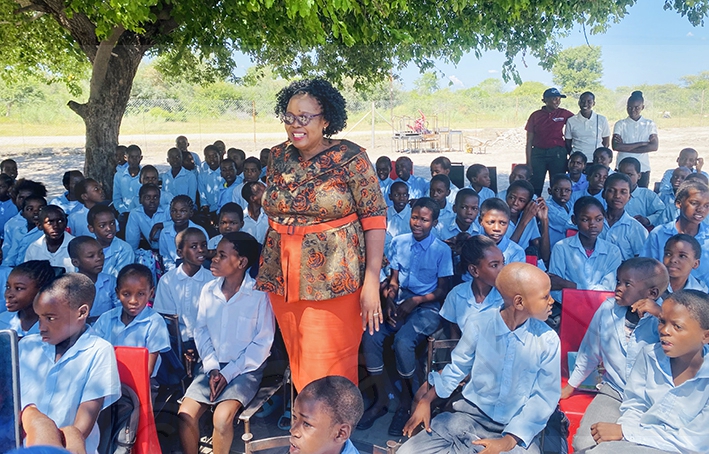Lease rentals help develop villages
02 Oct 2024
Okavango Community Trust (OCT), which was formed in 1995 and officially registered in 1996 is one of the success stories of Community Based Natural Resources Management CBNRM programme in the country.
The trust was formed by communities of five villages found in the eastern side of the Okavango Delta being Seronga, Gunutsoga, Eretsha, Beetsha and Gudigwa.
In an interview, the trust’s general manager Mr Botshelo Sesinyi said that they operated under the photographic section and was given two concession areas of NG22 and NG23.
The trust has since leased the two concessions to Wilderness Safaris and Great Plains, which operates Vumbura Plains and Duba Plains camps respectively. Through the lease rentals accrued from the concession areas, Okavango trust has made immense contributions to the development of its communities.
Seronga , which is the headquarters of the five OCT villages has a mortuary as one of the businesses operated by the trust for income generation to diversify its income sources while bringing services closer to their communities.
Prior to the inception of the mortuary business, the villages in the eastern side of the Okavango (commonly knowns as overseas) were reliant on mortuary services from Shakawe village, which is about 90 kilometers away on a dusty road.
The trust operates another entity of hardware at Gunotsoga to generate profit while bringing services to its communities while Beetsha and Gudigwa villages have general dealers with the same aim.
Additionally, the trust is currently constructing a Selective Service Hotel for accommodation facilities for visitors or tourists at the OCT premises in Seronga.
“The Selective Service Hotel has 11 rooms of safari style, bringing the delta into the village,” he said.
Mr Sesinyi said the hotel was built in phases and that the first phase of accommodation cost about P4 000 000 while the second phase would be construction of the main area encompassing kitchen, swimming pool and conference rooms.
He said the other ongoing project is construction of a cultural village at Eretsha, which was funded by Conservation Trust Fund (CTF).
Mr Sesinyi said the cultural village would have representation of Hambukushu, Bayei and Basarwa tribes, which are common in the OCT villages.
The cultural village also housed a herbarium laboratory, which was funded by United Nations Development Programme (UNDP) through Small Grant Program.
“Herbs are kept in the laboratory to showcase how our forefathers used herbs for medicinal purposes,” he said.
Mr Sesinyi said that a pre-school that was built by the OCT at Eretsha has since been lent to government and turned into a primary school for pupils to attend closer as they used to do so in the next village of Beetsha.
The trust, he added, had a partnership with Botswana Open University through sponsorship of students at a study group in Beetsha who retook Form 3 and Form 5. He said the trust also sponsored two young people from each of its villages for vocational/tertiary, especially in tourism related programmes annually.
The trust also supported communities in events such as independence and schools’ prize giving ceremonies.
Mr Sesinyi observed that CBNRM was a good programme since communities with rich natural resources benefited handsomely. Government, in the 1990s, to promote biodiversity conservation and rural development, introduced CBNRM.
According to Government Paper No.2 of 2007 on CBNRM Policy, CBNRM in Botswana largely involves wildlife-based tourism activities such as photographic and safari hunting while offering local communities chance to participate in tourism development and natural resources conservation. ENDS
Source : BOPA
Author : Kedirebofe Pelontle
Location : SERONGA
Event : INTERVIEW
Date : 02 Oct 2024






